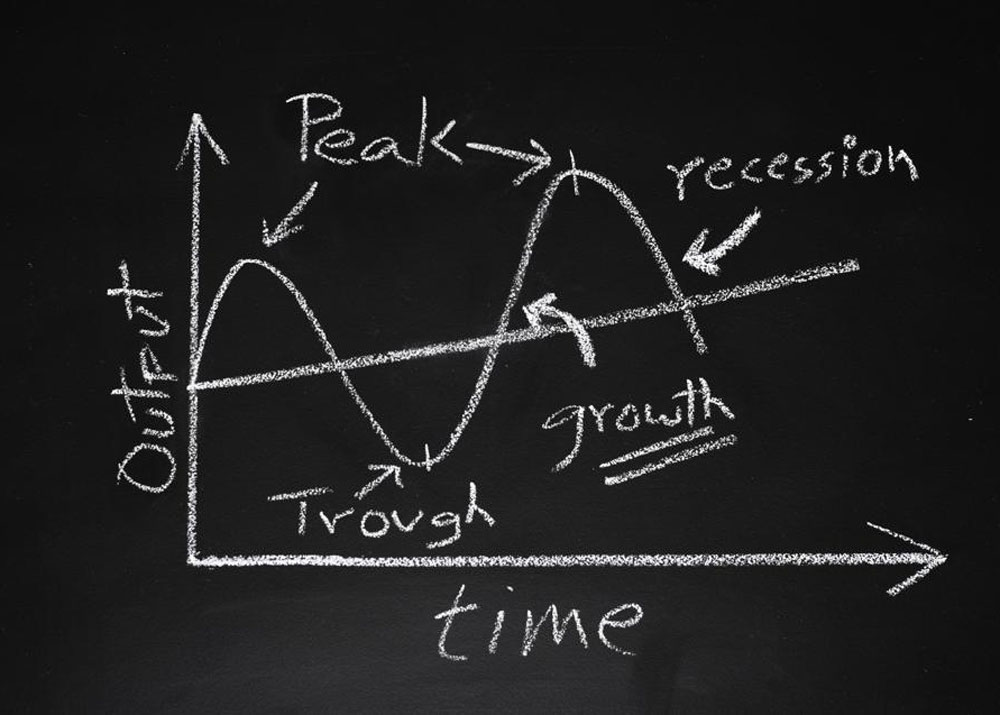Stand a kindergartner in front of a room and have them make a prediction, and they have nearly as good odds of making a correct one as a seasoned economist. And that’s your caveat emptor for the following comments.
What I’m curious about is the consumer impact of rising interest rates and more difficult thresholds for obtaining loans than what we have become accustomed to the past 8 years. Clearly, this must have a significant impact on business. In the mid-to-late 90’s interest rates dropped and dropped again, probably depressed by the fact that the only economy in the world market that was performing with any strength was the U.S., and at that time there was more money to lend than there was demand for it. Cheap money likely spurred the tech bubble of the turn-of-the-century, and has certainly spurred the real estate boom. American debt-levels are worse than ever before, and much of the money that is being used to cover debt and pay the bills is coming from home equity loans.
Everyone is conscious of the real estate adjustments taking place, because of longer sales cycles and depressed home prices. Defaults on home loans are also big in the news right now, with Countrywide reporting defaults in excess of 5%, where they were once consistently around 2%. And any time the stock markets or the American dollar take a particularly nasty hit, it’s newsworthy. But then things adjust back to normal and nobody pays attention.
Time Magazine recently reported that what we should be paying attention to, however, is not the fact that things ‘keep returning to normal.’ What we should be paying attention to are the mini-adjustments that keep happening, and the fact that they are happening closer and closer together. This is a greater portent of upcoming economic adjustment than any newsworthy big blip. I’ve been preaching to employees and customers for years now that we will see a recession starting in late 2009 or 2010. Time said they don’t think the recession will happen “next year,” but surely it’s coming.
So what happens to business when the average American consumer can no longer afford his lifestyle, because he bought a house that was beyond his means, his 5-year-ARM is now making payments extremely painful (if not untenable), and he has exhausted all the equity in his house buying Ski-Dos and vacations? At the same time, interest rates will go up. The average American non-mortgage debt is $19,000, which includes credit card debt ($7,500), medical debt and student loan debt. Getting easy and cheap money is already a thing of the past. Who will be spending money in the next five years, and what will they be spending it on?
Yes, unemployment rates are at their lowest point ever, but I think we are about to see a new wave of layoffs as businesses tighten their belts in advance of a negative economic climate. Consumers will once again become very careful about how they spend their money. The intelligent ones will become careful because they know they must conserve. The foolhardy ones will become careful because their splurging is over and there’s nothing left to spend. Retail and manufacturing will likely take the biggest hit. Construction workers who have spent the last 15 years with steady work are in for a shock. Communities who rely on construction for much of their economy will take the hardest and earliest hits.
OK, this is turning into a real downer. Here’s the deal. Somebody always makes money during a recession. Might as well be us, right? So what are we doing to make sure our families and our businesses are in good shape to weather the recession? Living within our means (now, not later), reducing debt (to zero if possible, other than mortgage debt), and making sure the equity in our homes is growing, not getting spent, are all critical aspects of making sure we are individually financially secure. The rules for business are remarkably similar, but on a different scale and with different drivers.
In our businesses, do we know which aspects of spending our customers are likely to cut, and do we have alternate strategies to compensate? Can we afford sales losses for a period likely to last from late 2009 to 2015? Can we carry inventory for customers who will become even more inventory averse? Have we established the kind of loyalty that will make us the last of their similar suppliers to get cut? Do we have strong relationships with our vendors, and have we made ourselves important to them? Do we have the trust and confidence of our employees, because they are the ones who will be conveying – overtly and subconsciously – to our customers how we feel about our own business?
Let’s be careful not to think the current economic news is all about real estate. The current economic news is all about the price and availability of money. We need to prepare now for the coming adjustments. Somebody always makes money during a recession. Might as well be us.
(c) Andrea M. Hill, 2007











